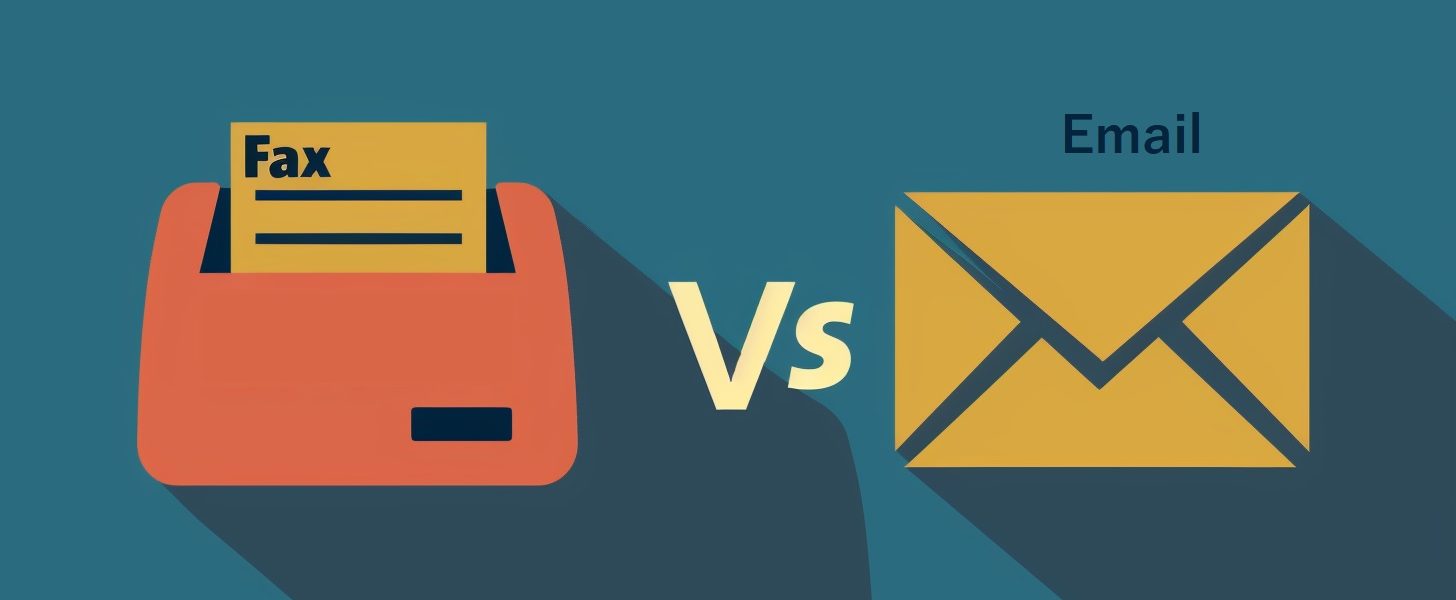When comparing fax and email, it’s essential to weigh their pros and cons. While the word “fax” might evoke images of outdated technology, modern advancements like online fax have made it a convenient and relevant communication tool. Online fax allows users to send and receive documents digitally, combining the security of traditional faxing with the ease of online access.
But which option offers the best balance of security and convenience? Should you stick with faxing, or is email the better solution for transmitting documents?
This guide will help you make an informed decision.
What’s the safest way to send important documents?
When dealing with sensitive information, the most secure option is to use an encrypted fax service. This ensures your documents are protected from unauthorized access or interception during transmission, providing peace of mind that your information stays confidential.
Fax vs. Email: a communication comparison
When deciding between fax and email, the right choice depends on factors like confidentiality, convenience, and the preferences of your recipient. With the rise of technology, Android fax apps have made faxing easier and more accessible, offering a modern twist on a traditional method. Both options have their unique advantages, but they also come with their own limitations.
Pros and cons of fax communication
Explore the key advantages and drawbacks:
Pros of fax communication
- Offline functionality: Traditional fax machines operate via analog phone lines, enabling you to send and receive documents without an internet connection.
- Legal validity: Faxed documents are considered legally binding, holding the same authority as original printed documents in a court of law.
- Enhanced security: Unlike email, traditional fax uses phone lines to transmit data, making it less susceptible to malware, viruses, or cyberattacks.

Cons of fax communication
- Reduced document quality: Faxing often involves manual scanning and printing, which can result in blurry or distorted outputs.
- Limited file transfer capabilities: Physical documents are required for traditional faxing, meaning creating and managing digital copies can be time-consuming.
- High costs: Beyond paper and ink expenses, faxing involves setting up additional phone lines, subscribing to caller ID services, and incurring extra charges for international transmissions.
- Maintenance challenges: Fax machines require regular upkeep to remain functional. Repairs and part replacements can add to the overall cost when the machine malfunctions.
By weighing these pros and cons, you can better determine whether fax or email aligns with your communication needs and resources. If you decide to use fax, you might also want to explore what is the best fax app for iPhone to streamline your experience.
Advantages and disadvantages of email communication
Let’s explore the details:
Pros
- Speed: Email provides a fast and seamless way to exchange information. No need to deliver documents in person or hunt for a working fax machine to send urgent messages.
- Convenience: With an internet connection, you can send emails from any computer or mobile device. There’s no need to leave your desk or wait endlessly for a busy phone line to connect.

Employee sending documents via email - Flexibility: You’re not tied to a specific location emails can be sent from anywhere, whether you’re at the office, at home, or on the go.
- Mass communication: Email allows you to reach multiple recipients at once, making it an efficient tool for group messaging. The number of recipients per email depends on your email service.
- Effortless organization: Unlike physical documents or faxes, emails can be easily managed with folders, filters, and labels, helping you stay organized.
Cons
- Security risks: Since email relies on the internet, it comes with vulnerabilities, including cyberattacks and data breaches. It’s crucial to stay vigilant about identifying phishing attempts and avoiding suspicious links or attachments.
- Spam and scams: Cybercriminals often exploit email to send spam or fraudulent messages disguised as legitimate offers.
- Inbox overload: While email is convenient, it can lead to an overwhelming number of low-priority or unnecessary messages. Keeping your inbox organized and clutter-free requires intentional effort and effective management strategies.
Key differences between fax and email
Faxing is useful for sending physical documents but lacks security and is costly due to equipment and supplies. Email, on the other hand, is more versatile for sharing digital files, offers stronger security with encryption, and is a cost-effective option using existing devices.



